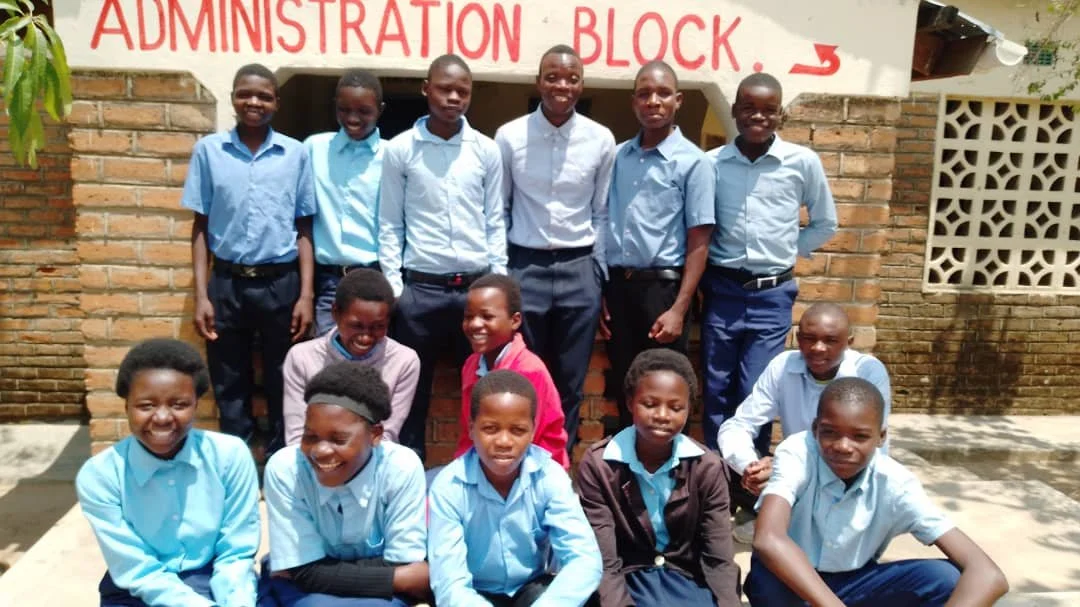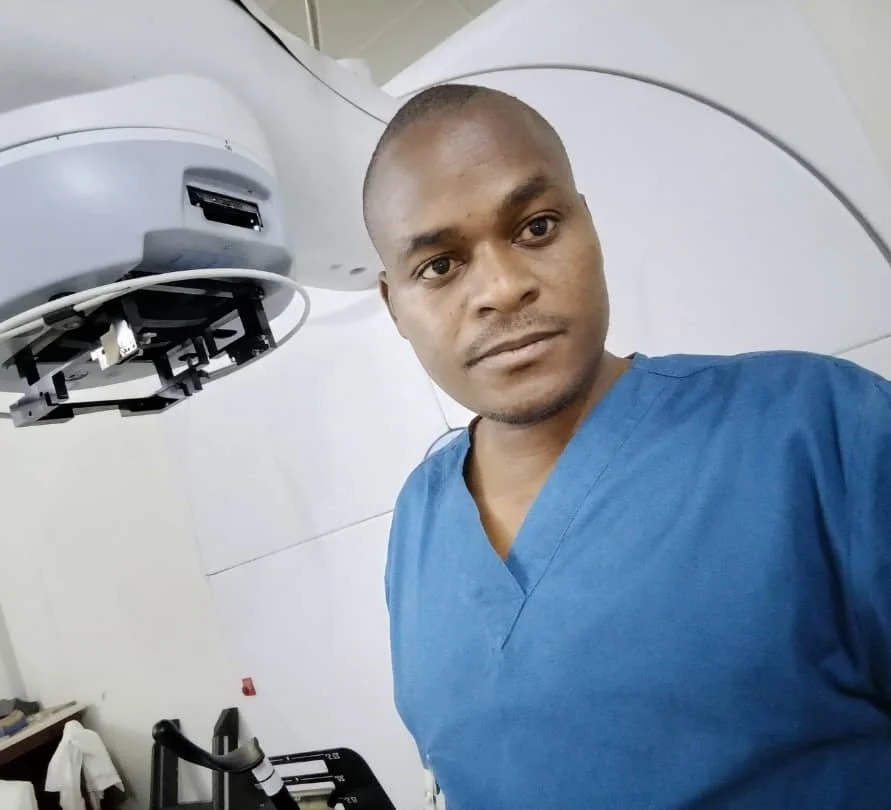Sponsorship Support
Some of the new sponsored students at one of the schools, October 2024
Secondary School Sponsorship
For this academic year, 2024-2025, we are currently supporting 83 students in four years of Secondary education in four different Secondary Schools.
Primary education is free in Malawi but Secondary education is not. Secondary School sponsorship enables a needy child who has done particularly well in the national exam at the end of Primary Education to accept an offer for Secondary Education. A mere pass in the exam is insufficient to be offered a place.
Sponsors currently donate £100 per year to cover costs involved.
School fees vary tremendously between a city secondary school and a Community Day Secondary School (CDSS). A better exam result can result in an offer of a place in a good government school in Lunzu or Mwanza. This requires costs of boarding and travel making it very much more expensive. For this reason, sponsored students are not linked with sponsors so that all costs can be met regardless of where a student has obtained a place. By averaging the costs, students from poor backgrounds are enabled to go to the school where they have been offered a place. The programme is managed on the ground in Malawi for us by Joshua Orphan and Community Care.
The donation for sponsorship pays the school fees (paid direct to the school, receipts obtained), uniform, shoes, exam fees, boarding plus travel to distant schools and more recently a small amount of "pocket money" each term - for items like ballpoint pens, jotters and things that the family can't afford such as soap. Soap is a luxury item - not likely to be found in the home of a needy student. Students are expected to be clean and well presented with clothes laundered twice a week.
From a sad, needy background. Supported by us at Secondary School and to study Radiography. Was working in XRay, Queen Elizabeth Hospital, Blantyre. Recently, successfully applied to International Atomic Energy Agency. Currently in Ghana for 2 years training in radiotherapy.
Graduated in Biological Sciences, 2022. Working as Research Assistant, Malaria Alert Centre, College of Medicine, Blantyre
Primitive housing near the school
“What is meant by needy?”
“Little or no family income. One or both parents may have died, and there is little or no regular employment in the household.” To avoid bias in recommendations by the Primary School, independent assessments of home circumstances are carried out by Field Officers working for Joshua.
Most of the homes have grass roofs, mud floors, no chairs, sometimes mats to sit on; many houses are in poor condition with leaking roofs. The adults in a home usually have little education. Without the three Rs, earning capacity is limited e.g. men may work as a cleaner in the market or as a guard. Students usually spend daylight hours, when not at school, in chores to enable family survival.
Students are expected to take full advantage of their sponsored education and are warned that exam failure or other failings may result in termination of sponsorship to allow someone else to benefit.
Exam pass rate and afterwards.
Many dozens of sponsored students have now completed four years of Secondary education. This would not have been possible for them otherwise and their talents would not have been developed. Many of them passed MSCE, the National exam at the end of Secondary education. Quite a few have now completed four years of higher education, often with the aid of Government bursaries.
Even without the MSCE, apprenticeship or training is possible. It also means that the next generation will grow up in an environment where more people have education than has been the case for the current generation. The majority of the previously sponsored students are in employment with an income. . Graduates are working in their chosen specialty, mostly in hospitals and schools -Radiography, Nursing, Teaching.. This is a remarkable change from primitive home backgrounds and subsistence living to having education and an income from employment. It has all been due to the great generosity of sponsors.
New sponsored students in Form 1B at Mitsidi CDSS in 2020




